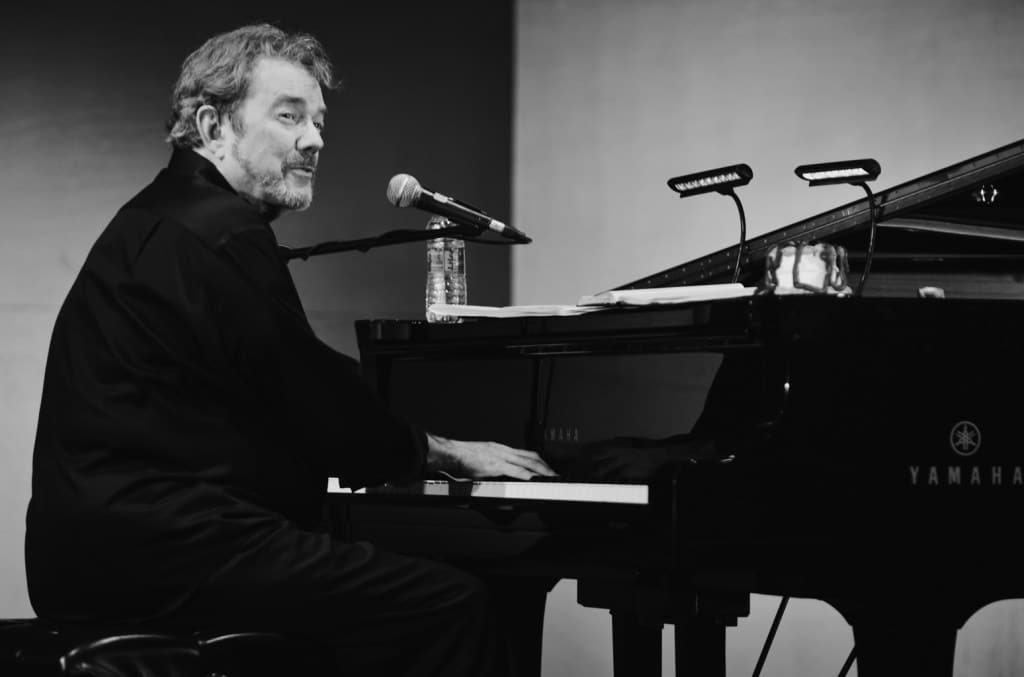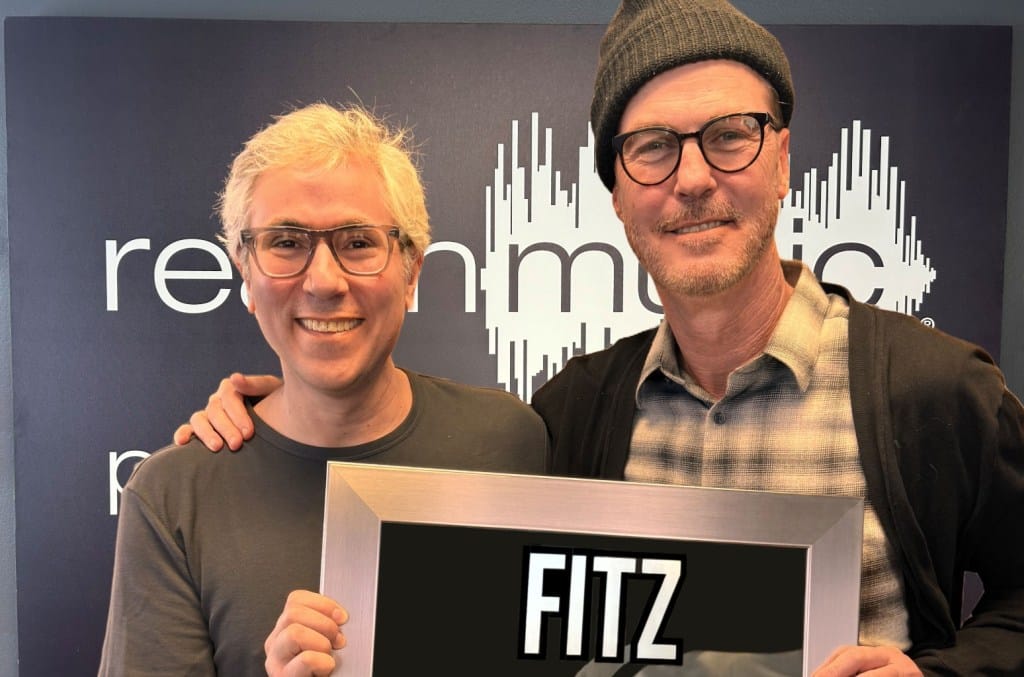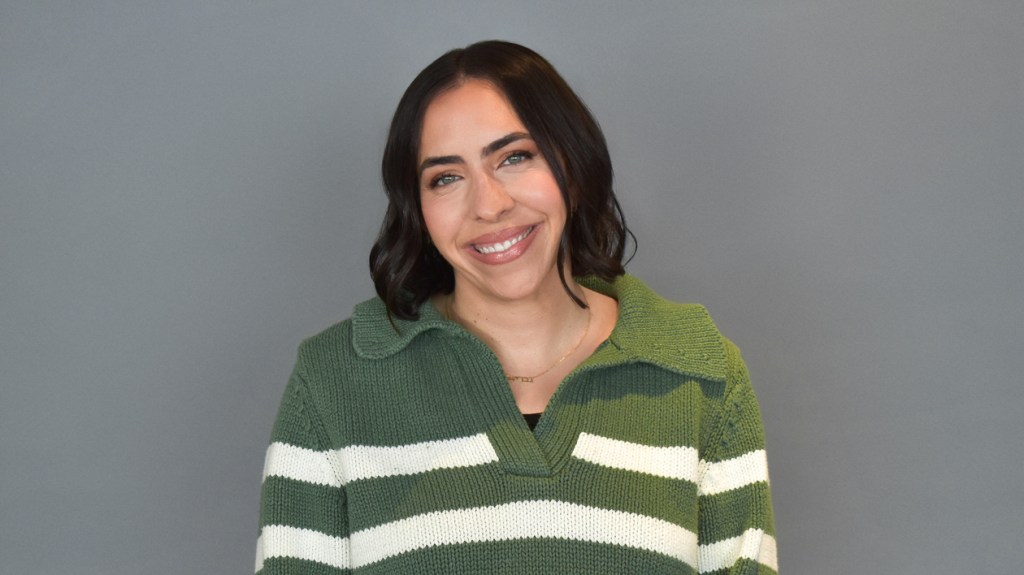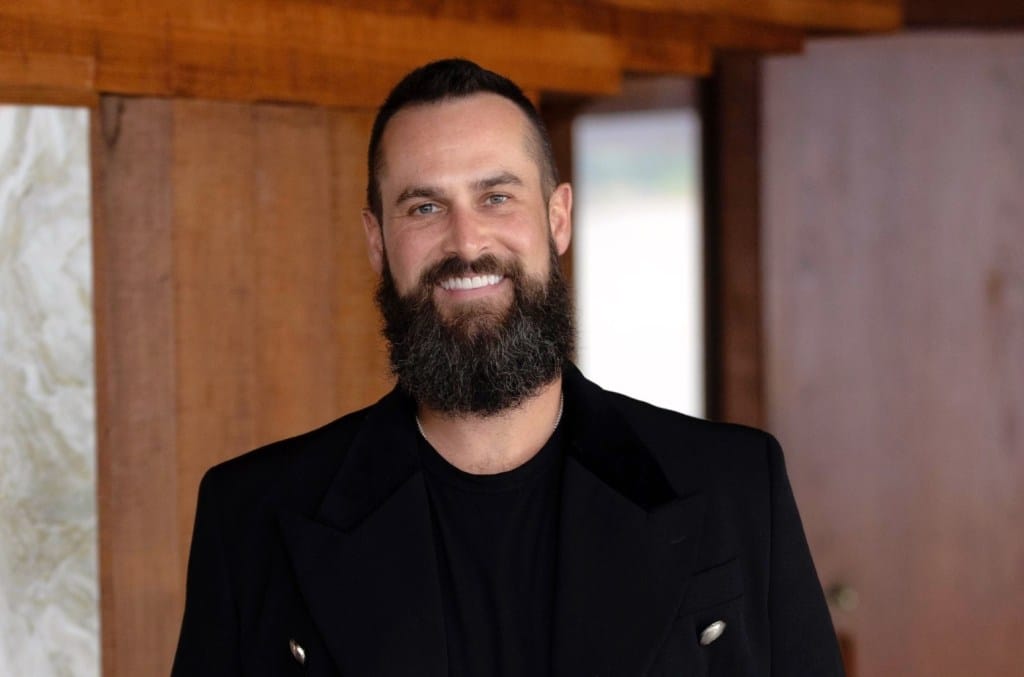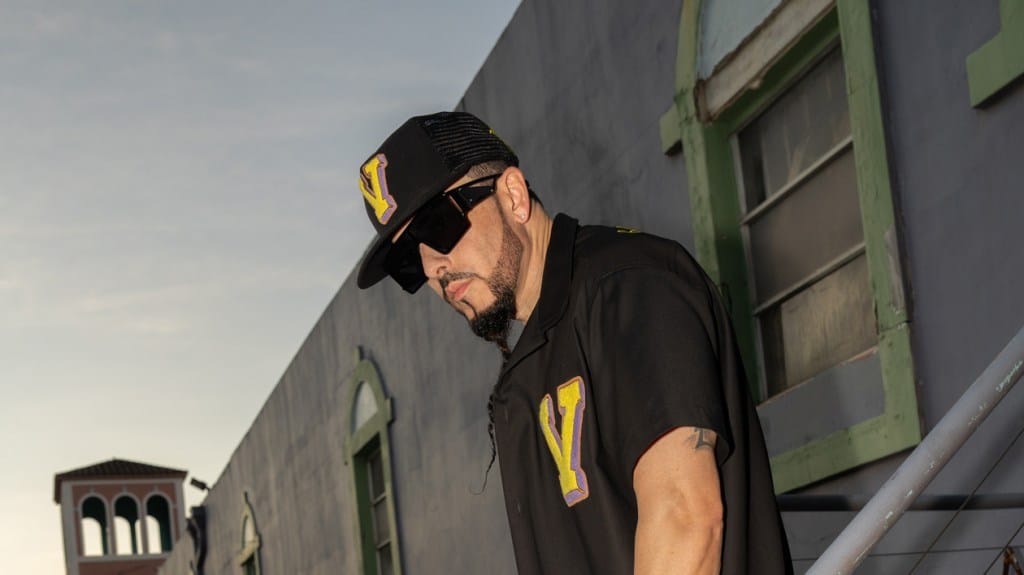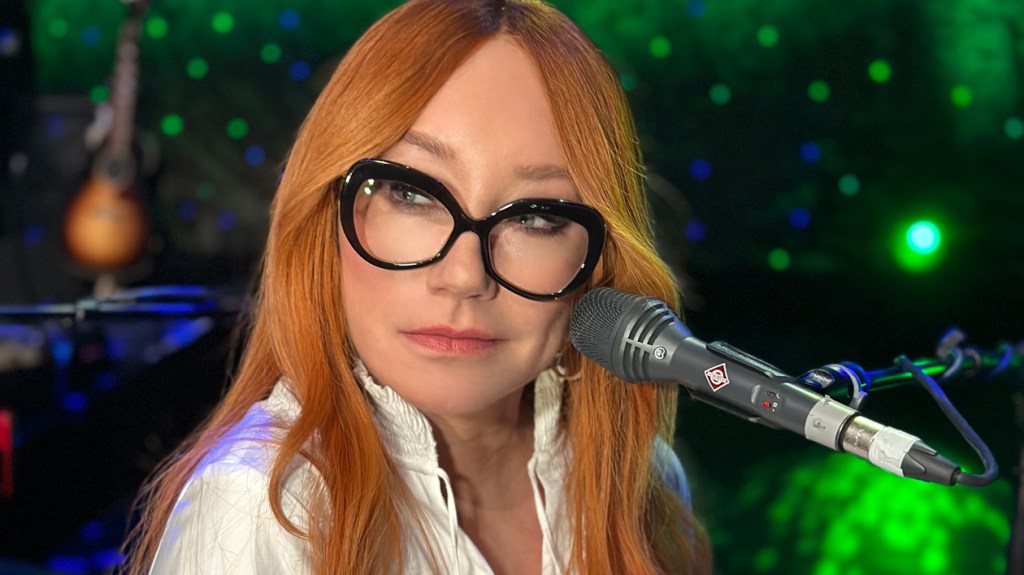Publishing
Page: 8
Primary Wave Music has signed a marketing and administration agreement with legendary songwriter Jimmy Webb to represent a major portion of his music publishing catalog, including such classic songs as “Wichita Lineman,” “The Worst That Could Happen,” “Galveston,” “By the Time I Get To Phoenix,” the Grammy-winning “MacArthur Park” and “Up, Up and Away.” Moreover, […]
This is Publishing Briefs, a semimonthly bulletin of recent signings, deals and doings in the wide world of music publishing.
In case you missed it, the Copyright Office requested public comment on “factors that may be contributing to the formation of new PROs” and Puerto Rican reggaetón star Yandel signed a worldwide publishing administration deal with Warner Chappell Music.
Caught up? Here’s what else is going on:
Reach Music Publishing signed a deal with Michael “Fitz” Fitzpatrick, lead vocalist of Fitz and The Tantrums, granting them copyright interest in his entire back catalog of around 100 songs, including hits like “Handclap,” “Out of My League” and “The Walker.” The agreement also includes administration of Fitz’s solo album Summer of Us and the upcoming Fitz and The Tantrums album set for release in 2025. Reach Music had previously administered much of Fitz’s catalog through Dangerbird Records since the band’s 2010 debut. Michael Closter, Reach Music’s founder, expressed excitement about completing the circle and officially representing Fitz’s catalog, while Fitz praised Reach Music’s passion and “hustle,” adding “I couldn’t be more excited about this deal and to make the future happen.” Reach Music, an independent publisher with offices in Los Angeles, Nashville, and New York, specializes in publishing administration and copyright acquisitions, managing works from artists like Public Enemy, Judas Priest, John Mayer and Zac Brown.
Trending on Billboard
Concord Music Publishing signed rising country artist-songwriter Cole Goodwin to a worldwide publishing deal, covering his full catalog and all future works. Originally from Pooler, Ga., outside Savannah, Goodwin gained attention with his 2023 self-produced EP Soon Enough and has since toured the Southeast, opening for acts like Austin Snell, Conner Smith and Zach Top. Goodwin’s latest single, “Fast Track Back,” was released in January. He will be touring extensively this spring and summer, joining Top, Smith and Dylan Marlowe, and Luke Bryan’s stadium tour. “He is proof that traditional country music is alive and well in the next generation of hitmakers and I am thrilled that he has chosen Concord as his publishing home,” said Courtney Allen, CMP’s senior director of A&R.
The Hello Group Publishing and Sony Music Publishing Benelux renewed their multi-year partnership, enhancing global collaboration in A&R, sync, licensing and administration. This deal expands THG’s reach, especially in Southeast Asia and the Asia-Pacific. Founded in 2021, THG has become a leader in K-pop and J-pop, working with artists like NCT Dream and TWICE Japan. They operate in Hollywood, London, Seoul, Mumbai and Dubai, with a roster that includes new signings like Avery Walker and Nanee. THG CEO and global head of creative Taylor Jones praised Sony for its global support, saying the music giant “allowed our flexible operating ideas to flourish, and supported our trajectory in fast-growing international markets such as India, Middle East and of course, our continued traction in South Korea and Japan.”
Mau P, a Dutch DJ and producer, signed a global publishing deal with Warner Chappell Music Benelux. Born Maurits Jan Westveen but also known as Maurice West, Mau P gained fame with underground club hits. He rebranded and released “Drugs from Amsterdam,” which topped Beatport’s Top 10 and garnered over 200 million streams. His follow-up, “Gimme That Bounce,” coincided with his first North American tour. Mau P’s success continued with tracks like “Your Mind is Dirty” and “Dress Code,” remixes for top artists and sets at Tomorrowland and EDC Las Vegas, among other events. Last year saw the launch of his show concept, BADDEST BEHAVIOUR, which debuted in NYC. WMG Benelux president Niels Walboomers praised Mau P’s talent, saying his “approach to production aligns perfectly with our vision to champion great artistry.”
Range Music Publishing expanded its roster with four new additions: Darius Coleman, Alex Goose, James Maddocks and Simon Oscroft. Coleman, in partnership with Tommy Brown and Champagne Therapy Music Group, has collaborated with artists like Normani and Chris Brown, and co-wrote “You See Me” from The Color Purple soundtrack. Goose, a producer/songwriter, has worked with Childish Gambino and composed for brands like Nike and Apple. Maddocks, co-wrote Morgan Wallen’s No. 1 hit “Cowgirls” and has worked with Post Malone and Khalid. Oscroft, a New Zealand native, co-wrote and produced Almost Monday’s No. 1 Alternative hit “Can’t Slow Down.” Range Music’s roster also includes artists like Shaboozey, Jack Harlow and Saweetie.
Story House Collective, founded by Christian artist/songwriter Matthew West, signed to its roster producer/songwriter Carter Frodge, who has worked with artists including Cain (“The Commission”), Newsboys (Stand), Jordan St. Cyr (“Be My Defender”) and The Afters (“God Is With Us”). Story House Collective also represents artists including West, Anne Wilson and Peter Burton.
Prescription Songs signed EJAE, a Korean American singer, songwriter and vocal producer. The NYC-based EJAE has worked with top K-pop groups like AESPA, TWICE, Red Velvet and NMIXX, contributing to hits such as Red Velvet’s “Psycho” and AESPA’s “Drama.” Recently, she has been the lead singing voice and songwriter for an upcoming animated K-pop movie on Netflix. Prescription Songs A&R Nick Guilmette praised EJAE’s ability to craft compelling melodies and concepts across genres, saying she’s “already has a catalog of international hits with over a combined billion streams, and is truly just getting started.”
Leon Else, a Los Angeles-based artist and singer-songwriter from the UK, signed a co-publishing deal with Brill Building Music Publishing. Known for his releases through Interscope and as an independent artist, Else’s music has been featured on numerous Apple and Spotify editorial playlists, as well as in various sync placements. Most recently, he co-wrote BTS member Jin’s “I Will Come To You,” which sold over 1 million copies in its first week.
Gangsta, the Colombian producer behind global hits such as Kapo’s “Ohnana”, “UWAIE” and “Aloh Aloh,” as well as Fariana’s “Caballito” and Wolfine’s “Bella”, signed a publishing deal with Sony Music Publishing Colombia and NEON16. The alliance “aims to unite the strengths of two powerhouse teams within the Latin music industry to bring GANGSTA’s sound to different markets worldwide,” according to a press release. Gangsta, who has a deep knowledge of Caribbean and African music (afrobeat, amapiano, salsa, and reggaetón), has also worked with Piso 21, Mariah Angeliq, Pedro Capó, Wisin, Elena Rose and Farruko, among other artists. –Sigal Ratner-Arias
Matt Lang signed an exclusive worldwide publishing deal with Anthem Entertainment and partnered with WME and River House Artists for booking and management. These alliances aim to boost his presence in the U.S. country scene while maintaining his success in Canada. Since his 2018 debut EP, Lang has achieved over 50 million streams, three Top 10 radio singles and multiple award nominations, including three Canadian Country Music Association nods. He has performed at major festivals like Boots & Hearts and Lasso Montreal, and internationally at Berlin’s C2C and the UK’s Buckle & Boots Festivals. Lang’s latest single, “Back To The Bar,” dropped this month.
APG and WZRD BLD’s In The Cut Publishing signed producer and writer Will Carlson. Known for his genre-blending style, Carlson leads the project Bilmuri on Columbia Records and has over 35 collaborative tracks. He co-wrote and produced four songs for Knox’s upcoming Atlantic Records debut. Carlson is also co-producing We Came As Romans’ new album and has upcoming singles with Pop Evil and Bad Wolves.
Last Publishing Briefs: Tori Amos Sticks With Downtown
Warner Chappell Music (WCM) has promoted Gabz Landman to senior vp of A&R at the company. News of Landman’s promotion comes just weeks after her longtime management and publishing client, Amy Allen, took home the Grammy for songwriter of the year, making her the first-ever woman to receive the honor. Landman got her start in […]
Look at your favorite album from the past year, and there’s a good chance that 10 to 30 different producers contributed to it. And yet in this “age of collaboration” that continues to produce culture-defining hits, we have a problem: How do we handle all these producer contracts?
In the U.S. model, producer deals are seldom discussed until after a label signs a recording agreement with an artist. Once the deal is set, the artist contracts directly with any producers working on their music — a requirement in the artist’s deal with the label. The artist then requests that the label pay, credit and account to the producer per the terms of their agreement. Unfortunately, this complicated process often becomes a game of broken telephone.
Discussions on this topic can quickly lead to finger-pointing. But the issues that producers are facing today, speaking generally, are not a matter of “us versus them.” The label, which has no direct contractual relationship with the producers, is asked by the artist on multiple occasions to honor deal terms that the label had little role in negotiating. Even if the producer agreement says the producer will be paid within five days of signing, unless the label agrees to pay within that timeframe, that schedule won’t be honored and the producer’s only option is to take it up with the artist.
Trending on Billboard
This disconnect becomes even more problematic when the volume increases. I currently represent over 30 producers and, on average, my office handles 20 to 40 producer agreements a week. That includes review on behalf of our producers as well as drafting agreements for our artist clients, the latter of which could require multiple agreements — even as many as five or six — to clear one song. For a boutique firm like mine, it keeps us busy and the clearances can be a big headache if not done in a correct and timely way. In some cases, they can hold up release dates and, if not executed properly, result in copyright infringement claims that could lead to lawsuits.
When negotiating a record deal for an artist, I make sure to have pointed conversations with the label about how they pay and account to producers because securing clarity in advance about the label’s policies is an absolute must.
It hasn’t always been this way. In the past, prior to the start of recording a project, artists would submit a budget proposal to the label encompassing all the creators on a given project. Oftentimes, the artist would use the label-provided budget to hire one producer, who would be responsible for hiring, managing and paying the musicians and other creatives needed to complete the album.
Today, however, unless you’re already an industry-leading producer, the odds are you’re coming into the studio on spec. This means that you and over 20 other hopeful producers work with the artist on 40 or so songs, with 12 to 15 songs typically making the final cut for the album. The songs that don’t make it are considered speculative, trial-based work done for free. If one or more songs by a given producer do make the cut, the hope is that that producer’s lawyer can negotiate good terms.
Unfortunately, there’s a lot of good music that doesn’t see the light of day due to clearance issues, not to mention music that gets removed from streaming services after release due to a failure to adhere to producer deals (or a failure to do them at all). But even in the best-case scenario when things can be worked out, most producers typically have to wait a long time before they get a single cent due to an overly complicated process.
In the first step of this process, the agreement has to be signed by both the artist and producer, a sometimes daunting task if that artist is touring. After that, the label has to accept the agreement (which can sometimes conflict with the recording deal originally inked with the artist), receive an invoice (sometimes multiple times before it’s actually “received” and in line with label policies) and new vendor paperwork, and wait for the producer to register with the label’s specific payment system.
“A lot of people think that all we do is push a button and money goes out, but there are so many checks and balances that admin does on the back end to ensure that payments are processed properly and within a timely fashion,” says one senior executive at a major label who asked to remain unnamed. Of course, we have to understand the logistical burdens and practical business realities that label employees are up against. But at the same time, we have to recognize the plight of producers who, despite making money for the label, are forced to wait on the payments they depend on to feed their families. Many employees at the labels understand this and know the system has to change.
“There is a huge disconnect when it comes to paying creatives in a decent time frame,” says Malita Rice, vp of A&R at Warner Records. “We have to keep their livelihood in mind and not only think from a label and artist perspective. If you can’t walk out the grocery store without paying, why should music be released without the creative getting paid or waiting months or years to be paid?”
While these systems and disconnects continue to exist, producers who have “made it” will continue to struggle to pay bills, even while their music becomes a viral TikTok sound.
Managing these clearances is such a burden on resources that any lawyer aspiring to make it in music should learn clearance docs first. And for producers who want to put themselves in a better situation? My friend and colleague, Bob Celestin, shares this advice: “One of the many obstacles to producers and songwriters getting paid their publishing monies is the neglect or outright refusal, at times, to document their respective ownership interests in songs they jointly create,” he says. “The easiest way to solve this problem is by utilizing split sheets at some point after they’ve jointly created a song.”
Still, while being diligent about this can help producers, it doesn’t fix the overall problems with the system itself.
So what’s the path forward here? Suggestions have been floating around for years: Unionize producers. Leverage AI to cut down on admin work. Develop a new “default” producer agreement that kickstarts the process. Go the way of the U.K. music industry and have labels contract directly with producers.
The truth is, all of these so-called solutions would help alleviate the current problems while also creating new ones. This isn’t about producers versus labels versus artists but rather about fixing a problem that has negative ripple effects across the industry. It’s imperative that we bring everyone to the table to create a more just system.
Acclaimed attorney Matt Buser leads Buser Legal — the Miami-based law firm at the crossroads of entertainment, sports and intellectual property matters — dedicated to empowering creators and safeguarding elite talent with strategic, personalized counsel. Since its founding in 2014, his blend of deep legal expertise, business acumen, and a passion for the arts has earned the firm acknowledgment from Billboard to USA Today, embodying the innovative spirit behind #NotYourAverageLawFirm.
Reggaetón icon Yandel has signed a worldwide publishing administration deal with Warner Chappell Music, the company announced on Thursday (Feb. 13). The hitmaker joins the publishing company after signing a recording deal with Warner Music Latina in September 2023, which marked his first deal with a major label after releasing albums via his own company, […]
SYDNEY, Australia — Warner Chappell Music has struck an exclusive worldwide administration deal with Luke Steele, frontman and co-songwriter Australian electronic pop outfit Empire of the Sun.
Born in New Zealand and raised in Perth, Steele is a one of the highest-flying talents of his generation to emerge from Down Under.
Steele (as Emperor Steele) and Nick Littlemore (Lord Littlemore) have released four studio albums as Empire of the Sun, each of them cracking the ARIA Top 10. Along the way, the act has snagged eight ARIA Awards, two APRAs, and a APRA Billions Award for “Walking on a Dream,” awarded to APRA AMCOS songwriter members and their publishers for one billion streams of a song.
“Walking on a Dream” was an ARIA Top 10 hit in 2008, and belatedly drove into the Billboard 100 it was synced to a Honda Civic commercial in 2016. In the U.S. the song drove all the way to No. 65 on the Billboard Hot 100 and to No. 1 on Billboard’s Dance Club Songs, their second leader on the tally after 2013’s “Alive”.
Trending on Billboard
Debut album Walking on a Dream peaked at No. 97 on the Billboard 200 in 2016, Ice on the Dune went to No 20 in 2013 and Two Vines climbed to No. 51, also in 2016.
Empire of the Sun’s catalog has shifted over 5.5 million albums worldwide, reps say, and accumulated more than 7.6 billion streams.
Steele has also released two albums and two EPs with the Sleepy Jackson, a solo album Listen To The Water, and worked with the likes of Jay-Z and Beyoncé.
“I’m a longtime fan of Luke,” comments Guy Moot, co-chair and CEO of WCM. “As one of Australia’s most influential and successful musical talents, he’s consistently pushed boundaries and delivered groundbreaking work with every release. We’re proud to be supporting him at such a pivotal moment in his career and look forward to seeing where his vision takes electronic music next.”
Adds Dan Rosen, president, Recording and Publishing, Australasia, WMG: “Luke is an exceptional songwriter and artist. He has been at the forefront of the Australian music scene for almost two decades and has had significant global impact with his music.” This signing, says Rosen, is “super exciting” for “everyone at Warner Chappell Music and we’re honored to be a part of this next stage in Luke’s artistic journey.”
Later this month, Empire of the Sun embarks on their world tour in support of Ask That God, their fourth and latest studio album, the expanded version of which dropped last week. The deluxe version includes “Somebody’s Son,” featuring Lindsey Buckingham.
When Empire of the Sun reunite, “we’re trying to find that rare jewel every time,” Steele told Billboard last year, ahead of the release of Ask Their God. “That’s what keeps it exciting for us.”
The U.S. Copyright Office posted a notice of inquiry on Monday (Feb. 10) in the Federal Registrar, requesting more information about issues related to American-based performance rights organizations (PROs).
More specifically, the Copyright Office is requesting public comment on “factors that may be contributing to the formation of new PROs”; whether there have been “increased financial and administrative costs imposed on licensees associated with paying royalties to additional PROs”; and “how to improve clarity and certainty for entities seeking to obtain licenses from PROs.”
The inquiry is a response to the House Judiciary Committee’s letter to the Register of Copyrights, Shira Perlmutter, six months ago, which requested an examination of “concerns” and “emerging” issues in the PRO sector. The letter was signed by the committee’s chairmen, Rep. Jim Jordan and Rep. Darrell Issa, and member Rep. Scott Fitzgerald.
Trending on Billboard
“It is difficult to assess how efficiently PROs are distributing general licensing revenue based on publicly available data,” the letter read. “For example, it is difficult to determine how accurately lesser known and independent artists as well as smaller publishers are being compensated compared to widely popular artists and major publishers.”
The letter added: “Licensees [like bars, venues, restaurants and small businesses] have reported receiving demands for royalties from new entities claiming to represent songwriters… Licensees are concerned that the proliferation of PROs represents an ever-present danger of infringement allegations and potential litigation risk from new and unknown sources.”
The Copyright Office’s notice of inquiry addressed this so-called “proliferation” of PROs as well, noting that for decades, ASCAP, BMI and the smaller SESAC were the only PROs in the U.S. However, in the last dozen years, this market has doubled in size with the introduction of Global Music Rights (or “GMR”) in 2013, PRO Music Rights in 2018 and AllTrack in 2019.
Around the world, most other countries only have one PRO representing all local rights holders’ interests — many also handle mechanical (or reproduction) rights as well — making the U.S. an especially unique and complex market for licensees.
Written comments concerning these matters must be turned in to the Copyright Office by April 11. After that, there will be a “reply comment” period that has a submission deadline of May 7.
Warner Music Group has expanded its corporate development team by appointing Alfonso Perez-Soto as executive vp of corporate development, focusing on recorded music, and Michael LoBiondo as senior vp of corporate development, focusing on publishing. Both will report to Michael Ryan Southern, executive vp and chief corporate development officer, who has led WMG’s global M&A activities since August.
The company said this new structure provides WMG with dedicated dealmakers for each side of the business, enabling targeted investments and acquisitions across music rights and technology. Due to this reset, the leaders of Warner Music’s Emerging Markets territories, who previously reported to Perez-Soto, will now report directly to Simon Robson, president of Europe, the Middle East and Africa, recorded music.
Perez-Soto has spent much of the last two decades at Warner Music, having joined the company in 2005 as vp of business development for Latin America and US Hispanic markets. He was bumped up to senior vp in 2012 and in 2017 originated the position of senior vp, global business development and chief commercial officer, emerging markets. A year later he was elevated once again to executive vp of Eastern Europe, Middle East and Africa, and in 2021 was promoted to president of emerging markets. In that role, he has designed and implemented a growth strategy based on M&A, geographical expansion and organic artistic success that significantly expanded Warner’s footprint in these emerging territories. Earlier in his career, Perez-Soto held stints at Telefonica, Universal Music Group and Nokia.
Trending on Billboard
LoBiondo has been serving as head of business development for Warner Chappell Music, WMG’s music publishing arm, since 2021. In this role, he’ ha’s been responsible for identifying and executing strategic acquisitions and partnerships to benefit the publisher’s frontline songwriters and its iconic song catalog. Prior to this, he held various positions at WMG, where he had a hand in numerous major initiatives, including the acquisition of Parlophone Label Group and several Series A music technology investments. Between his tenures at Warner, LoBiondo worked at the artist development company mtheory. He began his career as an analyst at Goldman Sachs.
Southern expressed confidence in Perez-Soto and LoBiondo, calling them “tenacious and curious leaders with a deep understanding of the music industry and its key players… We’ve committed to grow WMG through a mixture of organic and M&A activity. Now we’ve got a dedicated dealmaking beacon for each set of rights that’ll enable us to continue to improve our service to artists and songwriters.”
Of all the ultra-familiar songs appearing in Super Bowl LIX ads — from Bruce Springsteen‘s “Born to Run” to Van Halen‘s “Panama” to Louis Armstrong‘s “What a Wonderful World” to Seal‘s “Kiss from a Rose” — the most sentimental may be the Bellamy Brothers‘ “Let Your Love Flow,” used in a Budweiser spot about a horse rescuing a keg from a raging river and rolling it into a bar.
It’s sentimental, anyhow, for Concord Music Publishing. In the early ’70s, Larry Williams, a Neil Diamond roadie, penned the track, and a producer put it in the hands of the Bellamy Brothers. Their breezy, mid-tempo version hit No. 1 in 1976. By then, Williams had signed with a new publisher, Bicycle Music, and as the company changed hands over the years, including a sale to Concord in 2015, “Let Your Love Flow” endured as a sort of Song Zero. “That was literally the very first song technically signed to Concord,” says Brooke Primonte, the company’s executive vp of global sync. “It’s very dear to everybody who’s been here since day one.”
Trending on Billboard
The song’s story, and its timeless feel, exemplify the Super Bowl synchs this year; viewers won’t hear much contemporary music a la 2024’s Ice Spice-enhanced Starry spot featuring the rapper’s hit “Deli.” H.E.R.‘s version of “Born to Run” is in a Dove commercial about empowering young girls to appreciate their bodies; “Panama” is in an ad starring Glen Powell as a dad reading “Goldilocks” to kids and fantasizing about fighting dragons in Dodge Rams; Shaboozey sings “What a Wonderful World” as Nerds characters parade around him in New Orleans; and in a surreal, star-studded Mountain Dew spot, Seal appears as … a seal.
“These are songs pretty much guaranteed to accomplish what the agency or brand are trying to do,” says Tom Eaton, senior vp of music for advertising at Universal Music Publishing Group, which has represented Seal for more than seven years. “They’re choosing songs familiar to a wide assortment of people. They can’t miss.” Adds Frank Di Minno, vp of creative sync at Warner Chappell, one of the publishers for “Panama”: “This was definitely the catalog Super Bowl.”
The Dove spot is the first-ever commercial to use Springsteen’s signature 1975 anthem, more than three years after he sold his catalog to Sony Music Publishing for $550 million. Springsteen retains approval rights for the song, and after Brian Monaco, Sony Music Publishing’s president/global chief marketing officer, shared the spot with the singer-songwriter’s team a month or two ago, they approved it quickly. “There’s definitely demand for his catalog, as well as other ones we’ve purchased — we have Paul Simon and Queen,” Monaco says, adding that with Super Bowl ads costing a reported $7 million to $8 million, “brands want to get the most bang for their buck by using songs that people know.”
As a result, synchs, a multibillion-dollar industry for music publishers, are especially expensive for brands this year. According to music business sources, costs on the publishing side range from $400,000 to $2.5 million, not counting the separate fees for licensing master recordings.
“The numbers are showing [that] people are streaming classic music at very high rates, as opposed to music of the last 10 or 15 years, just in their daily lives,” says Marty Silverstone, president of global sync for publisher Primary Wave, whose Super Bowl synchs this year include Smokey Robinson‘s “Cruisin’” for Haagen-Dazs and Huey Lewis & the News‘ “The Power of Love” for Bud Light. “I’m seeing, even more than usual, the appetite for nostalgia-driven music.”
Super Bowl ads often mirror the times, and this year’s familiar-songs trend may have deeper cultural relevance. “The country is trying to find its way in very challenging times,” says Dan Rosenbaum, vp of commercial licensing for BMG, whose three synchs include a share of “What a Wonderful World.” “Using a song that has resonance from a time that was simpler gives a certain comfort to the viewer.” Adds Steve Nalbert, vp of sync licensing and digital for Round Hill Music, another “What a Wonderful World” publisher: “More than ever, we need unifying music that bring us together, rather than pulls us apart. Luckily, the brands realize that, too.”
Billboard asked top publishers to tally their own synchs scheduled to appear as national spots during the game — including movie and TV trailers but not Fox broadcast promos, teasers or halftime show performances. Sony Music Publishing scored the most, with 14; Universal Music Publishing Group had 11; Warner Chappell, seven; Primary Wave, six; Kobalt, five; Reservoir Media, four; Concord and BMG, three apiece; and Round Hill, one.
This year’s trend towards familiar songs does not mean all the songs are older classics. Childish Gambino‘s 2018 anti-racist anthem “This Is America” appears in a Hims & Hers ad about a weight-loss drug: “Historically, Donald [Glover, who performed and co-wrote the song] and his team have been pretty selective about where they license ‘This Is America.’ They don’t pursue much,” says Rob Christensen, executive vp/head of global sync for Kobalt, the rapper’s publisher. “They thought this one was a good one to pursue.” (A few days before the game, the Partnership for Safe Medicines and two U.S. senators asked the FDA to block the ad due to not disclosing potential side effects.)
Reservoir Media’s synch total includes one “contemporary hip-hop song,” according to Scott Cresto, the publisher’s executive vp of synchronization and marketing, although he declined to reveal it before the game. Instead, he pivoted to a classic: A Michelob Ultra spot starring Willem Dafoe and Catherine O’Hara playing pickleball with famous athletes (and not-so-famous pickleball stars) synchs to “Papa Loves Mambo,” a Perry Como hit that dominated the Billboard charts in 1954. The brand, he says, requested in its brief “something that played with humor, that a certain generation identified with, but all generations would recognize it.”
“It’s definitely cyclical,” Cresto adds. “There have been years where [brands] are looking for more contemporary pop hits. This year and last year have definitely leaned more catalog.”
Publishing Briefs is a bimonthly bulletin of recent signings, deals and doings in the wide world of music publishing.
In case you missed it, the NMPA announced this week it will issue takedown notices to Spotify for 2,500 podcast episodes, alleging they contain unlicensed works from 19 member publishers. And this morning, Warner Music announced a new direct deal between its publishing arm, Warner Chappell, and Spotify. Caught up? Here’s what else is going on:
That little earthquake you feel? It’s a rush of new extensions from Downtown Music Publishing, including a renewed pact with iconic singer-songwriter Tori Amos. Under the renewal, Downtown will continue to represent Amos’ entire catalog, which spans 16 studio albums and several live releases. Renowned for her ethereal vocals, poetic lyricism and classically trained piano prowess, Amos has kept fans rapt since her 1992 breakthrough, Little Earthquakes, and high-charting followups like 1994’s Under the Pink and 1996’s Boys for Pele. Her iconic songs include “Crucify,” “Silent All These Years,” “Cornflake Girl,” “Caught a Lite Sneeze” and “A Sorta Fairytale,” among many others. DMP also extended its agreements with several other notable writers. These include Tim Kellett, known for his work with Olive, The Durutti Column and Simply Red. Also renewed are deals with Les Claypool, the inventive bassist and quirky voice behind alt-rock trio Primus; Geoff Wilkinson, founder of Us3 and producer of the classic “Cantaloop (Flip Fantasia)”; and acclaimed songwriter Brett Dennen.
Concord acquired a portion of Ed Sheeran compatriot Johnny McDaid’s song catalog and will also represent his future works. McDaid, a member of Snow Patrol since 2011, has written for artists like Sheeran, BTS and Pink, with notable hits including “Photograph,” “Bad Habits” and “Shivers.” Originally from Northern Ireland, McDaid moved to London as a teenager and later led the band Vega4 before joining Snow Patrol in time for its Fallen Empires album. Over the years, he’s collaborated with major artists across multiple genres, including Robbie Williams and David Guetta. His creative union with Sheeran has been particularly impactful, co-writing seven songs on Ed’s X album, including “Photograph,” and eight songs on ÷, featuring the ubiquitous “Shape of You” (4.2 billion streams on Spotify alone). He continued working with Sheeran on =, co-writing major hits “Shivers” and “Bad Habits.” “Johnny is a true artist,” said Jim Selby, chief publishing officer at Concord. “His catalog to this point has reached incredible heights, culturally resonating around the world. We’re thrilled to represent some of his iconic works and honored to partner with Johnny for the future.”
Trending on Billboard
Warner Chappell Music signed an exclusive worldwide administration deal with Luke Steele, the artist behind Australian electronic duo Empire of the Sun. The group has won multiple awards, including eight ARIA Awards, and sold over 5.5 million albums with 7.6 billion streams, WCM said in its announcement. Steele has also achieved success as a solo artist, collaborating with Jay-Z and Beyoncé. WCM co-chair and CEO Guy Moot praised Steele as one of Australia’s most influential musicians, adding “he’s consistently pushed boundaries and delivered groundbreaking work with every release.”
Prescription Songs signed Nashville-based songwriter Trent Dabbs, known for co-writing “High Horse” with Kacey Musgraves and “Girls Chase Boys” with Ingrid Michaelson. Dabbs recently worked on Stephen Sanchez’s singles “Evangeline” and “Emotional Vacation,” and collaborated with artists like COIN, Valley, Noah Cyrus, and NEEDTOBREATHE. In 2024, he released songs with Maggie Antone, Allen Stone, Wild Rivers, and Astrid S.
Big Yellow Dog Music welcomed country artist Ethan Garner to its artist and songwriting roster. After playing shows around the Nashville area, he earned an opening slot for Travis Denning. Garner joins a roster that includes songwriter Daniel Tashian, producer Jared Conrad, Dave Pittenger, Jessie James Decker and more. Garner is managed by Matt Musacchio of Champ Management/Red Light Management. –Jessica Nicholson
Universal Music Publishing Nashville signed country artist Dalton Davis to an exclusive global publishing agreement. Originally from North Carolina, the Nashville-based Davis is set to release his debut album in 2025. His second single, “Sit Crooked,” has nearly half a million streams, and his third single, “Blue Ridge Sky,” was released on Jan. 31. Roxy King, senior director of A&R at the company, praised Davis as the “rare artist that knows exactly who he is and what he wants to say,” while UMPG Nashville chairman and CEO Troy Tomlinson highlighted his “it factor.” Davis is represented by WME for touring and managed by Alex Lunt of Type A Management.
Electronic duo WAVES, consisting of Spencer Bridle and Frankie Grant, signed a global publishing deal with Position Music. Known for their “elevated rave” sound, WAVES scored radio airplay with singles “Mr. Wilson” and the followup “Jalapeño,” and in 2024 dropped a cover of Macklemore’s “Thrift Shop,” titled “Pop Some Tags.” Their latest single, Stuck on You featuring Sarah de Warren, was released last month. WAVES join a Position roster that also includes Tinashe, Cannons, Audien and Judah & the Lion.
Bucks Music Group signed British rapper and producer CLAVIS 7EVEN to an exclusive worldwide publishing deal. The Congo-born CLAVIS 7EVEN first gained attention on BBC and elsewhere with his mixtape 7’s Deadly Sins. His single “LOSIN U” featured on Apple Music, and he was named BBC Introducing’s Artist of the Day last month.

 State Champ Radio
State Champ Radio 